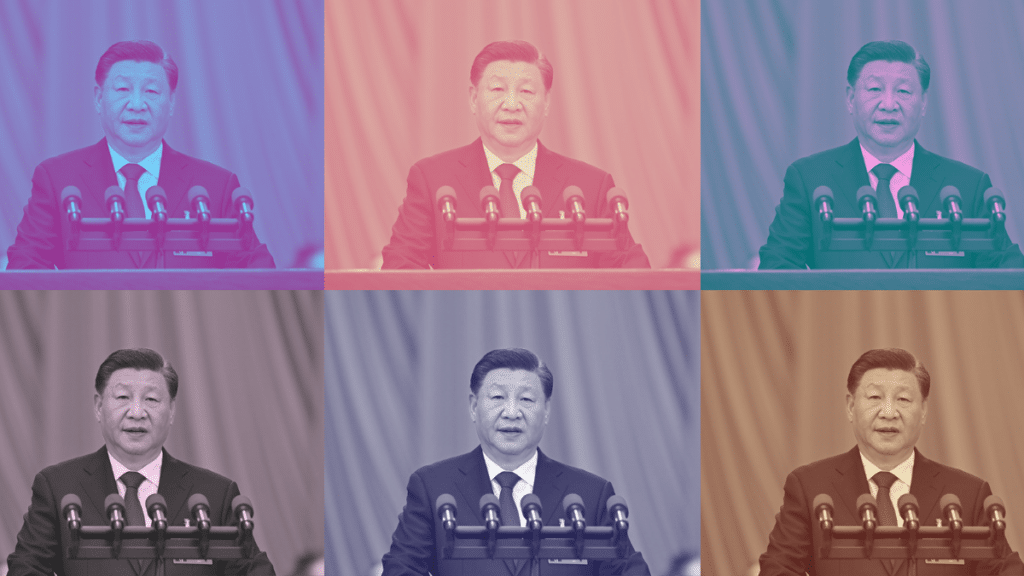Being a Cyberpower – China’s Ambitions in Cyberspace
Helene Pleil / Mar 30, 2023Helene Pleil is Research Associate at the Digital Society Institute (DSI) at the ESMT Berlin, focusing on cyber diplomacy, arms control, the role of disinformation and China's role in cyberspace.

The recently released U.S. National Security Strategy clearly identifies China as a systemic rival in the context of strategic competition. China is described as the "only competitor with both the intent and, increasingly, the capability to reshape the international order." Likewise, NATO Secretary General Jens Stoltenberg says China's growing influence is changing the world, with direct consequences for security and democracy.
At the same time, geopolitical conflicts are increasingly shifting to cyberspace, including tensions between the U.S. and China. Technology is therefore no longer just an area for opportunity, but also "a battleground for control, values and influence, " as the United Kingdom’s top spy chief, GCHQ director Jeremy Fleming, emphasizes. Hence, cyber issues are of growing importance in international relations.
In recent months, a large number of cyber operations targeting Western governments and businesses originating from China have been observed. Nevertheless, opinions among EU member states diverge on China. Depending on the policy area China is simultaneously regarded as a cooperation partner, negotiation partner, economic competitor andsystemic rival for the European Union (EU).As a new reality has emerged, Europe must find strategic answers and a shared understanding of the challenges China poses, including in the digital sphere. Hence, it is essential to know China's ambitions and goals in cyberspace.
Cybersecurity and innovation is of high strategic importance for China since it aims to be a conventional great power and a leader in digital space. To this end, the political priority given to digital technology has increased significantly since 2012. Further, China has built a comprehensive institutional cyber governance framework. As President Xi recently stated: "Education, science and technology, and human resources are the foundational and strategic pillars for building a modern socialist country in all respects."
China's ambitions in cyberspace encompass political, economic, and military concerns. They are intended to serve the higher goal of strengthening and protecting the party-state and bolstering its legitimacy. Thus, digital technologies are primarily used to achieve domestic needs and interests, to generate prosperity and maintain economic growth and social stability. A major focus is on cleansing China's internet of ideas and information that might challenge the Chinese Communist Party's (CCP) power, making technologies for surveillance and censorship vital. The CCP seeks to exploit the economic potential of the Internet without jeopardizing its own power. Hence, China's all-encompassing understanding of national security extends to cybersecurity, and its digital technology ambitions reflect Chinese domestic concerns and aspirations.
However, China also aims to influence the international order and the global development of the Internet by trying to align the international system with its vision while gaining greater autonomy in the global digital order. Three areas are particularly crucial:
1) Standardization
China aims to become a technical standardization power. By setting technical standards it is possible to influence actors and to promote international norms that favor your own interests. The freedom of an open internet is rooted here because whoever sets the technical standards will shape the ethical, political, and security functions and expectations of key enabling technologies. Hence, standards are vital regarding economic competitiveness and national and cybersecurity. Thus, standardization becomes increasingly politicized: Some see this as a danger of two blocs competing over the values inscribed in technology.
To influence standardization, China is pursuing different methods: gaining influence in international standard setting bodies, e.g., by placing Chinese nationals in key leadership positions, chairing key technical committees and working groups, and getting Chinese companies to vote as a bloc in favor of Chinese proposals. Additionally, China aims to achieve a leading role in the development of new technologies for which standards are still largely "up for grabs". Projects such as the Digital Silk Road are also helping to set de facto standards, as customers are committed to using Chinese technology and agreements have been reached to harmonize standards.
2) Technological self-reliance:
Currently China depends on foreign technology. As Xi highlights, “China’s hidden danger lies in core technologies being under the control of others.” Technological reliance is central to economic and systemic competitiveness and resilience. Therefore, China aims to become technologically self-reliant and thereby reduce the country’s vulnerable dependence on other tech leaders and the threat of foreign state intervention in China’s digital networks.
Further, China is focused on becoming a leader in strategic and emerging technologies, such as AI and 5G. This allows China to build a structural dependence in global production chains, even as the government funds tech giants to promote know-how and innovation. Moreover, many cyber operations targeting the intellectual property of foreign industries and research institutions can be observed in order to gain advantages.
3) Alternative narratives of international cybersecurity:
The diplomatic arena at the global level is also being used to promote a more Sino-centric global digital order. A major aspect of this is to promote cyber sovereignty. Such an understanding is contrary to the currently prevailing Western idea of a free Internet, since this would allow states to hold ultimate authority in the digital space. It would erect national boundaries in cyberspace that block the free flow of information, making it easier to control the Internet and enable "digital authoritarianism". Further, this poses a threat for the multistakeholder approach. This creates ideological conflicts and divides cyberspace. One example of this was the proposal to replace IP with "NewIP”.
China did not agree for a long time that international law applies in cyberspace. This position has changed in recent years; however, now there are challenges in the actual application of it. This is illustrated, for example, by China's vote against the Program of Action in November 2022, which aims to advance the application of international law in cyberspace.
To strengthen its position in the global digital order, China seeks to reshape supply chains, global economic and technological systems. China is using many different arenas and initiatives at the international level to achieve these goals. We currently observe the rapid rise of China as a technical power; its capabilities are increasing, yet the country is not dominant.
Indeed, these ambitions also have their limits: there is a lack of talent and innovation to implement these strategic goals, and there is a high dependence on foreign technologies. However, Chinese initiatives and ideas are developing, appealing to some actors and creating challenges for others. Hence, Europe and the United States must find strategic answers to the questions that digitization and the development of new technologies raise in terms of security and international relations.
Authors
